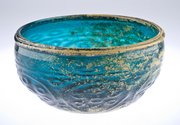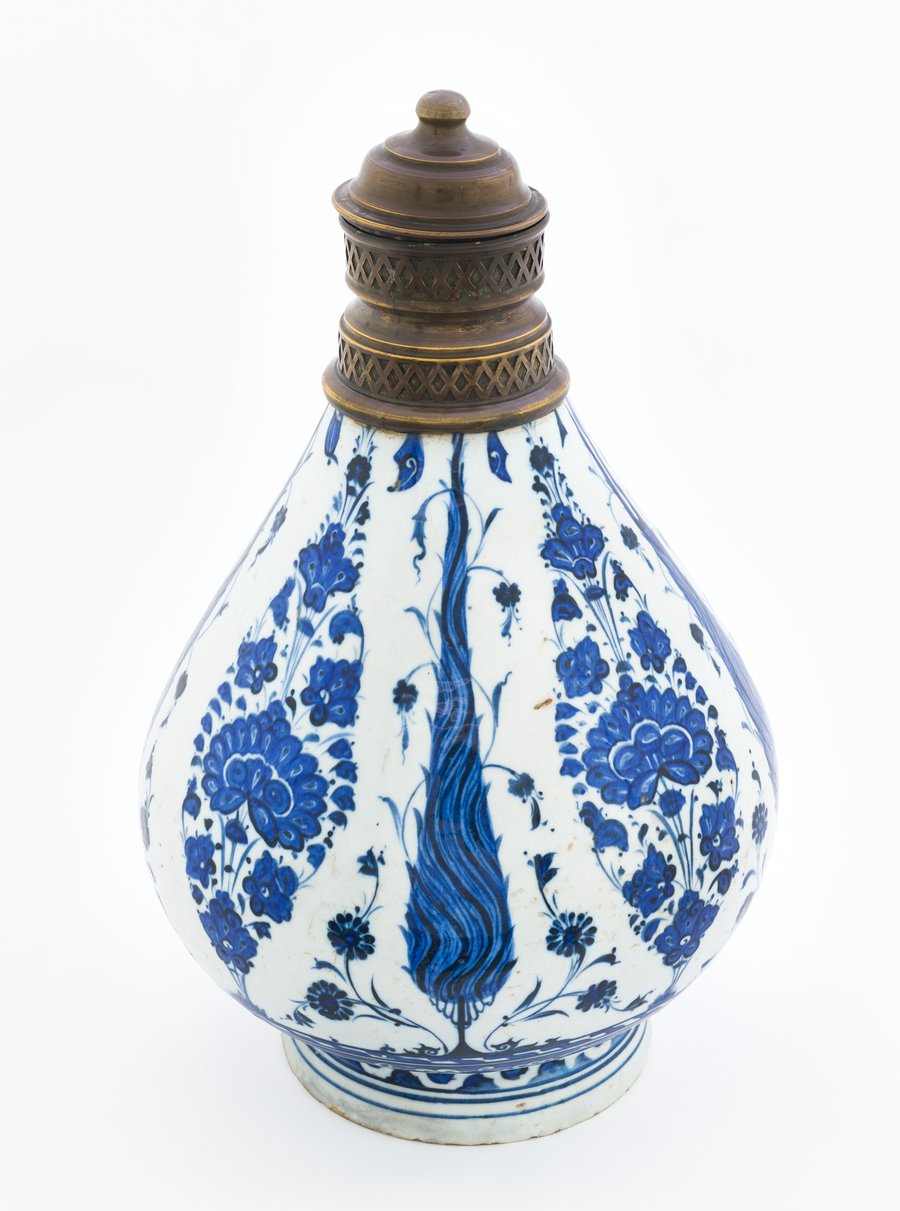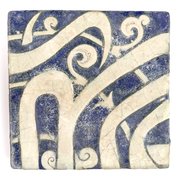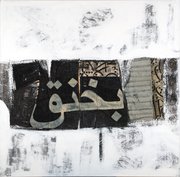
Bottle
Museum of Islamic Art
- Title:
- Bottle
- Production place:
- Iznik
- Date:
- 1500 - 1545
- Period:
- Ottoman
- Title:
- Bottle
- Production place:
- Iznik
- Date:
- 1500 - 1545
- Period:
- Ottoman
- Material:
- Fritware, Pigment, Glaze, Copper alloy, Solder
- Technique:
- Underglaze painting, Glazing, Hammering, Openwork, Riveting, Soldering
- Dimensions:
- 32
- Diameter:
- 20
Iznik pottery is named after the town of Iznik, in western Anatolia (modern day Turkey), where it was initially made. The earliest evidence of Iznik production occurred during the reign of Ottoman Sultan Mehmed II (r. 854-886 AH/1451-81 CE), whose appreciation for fine blue and white Chinese Ming porcelains inspired him to start making similar ceramics. As such, early Iznik pottery was blue and white, and largely influenced by Chinese motifs. This vessel follows this earlier tradition and was probably made between 905-951 AH/1500-45 CE. This blue and white Iznik bottle has a pear-shaped body and tapering cylindrical neck, which has since broken and been replaced by a later 13th century AH/19th century metal sheet, incised with fine geometric patterning. This bottle forms a group of similarly shaped vessels known as Sürahi (water bottles); indeed, many early Iznik vessels took their inspiration from metalwork. The decoration on this bottle shows a series of deep blue cypress tress alternating with elongated floral medallions.



